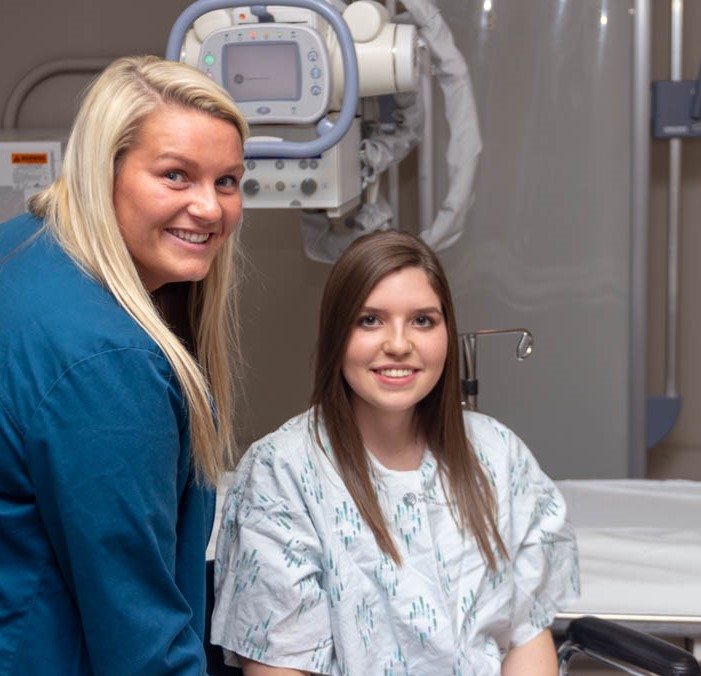Application Information

In Order To Apply the following must be met:
- United States citizens or permanent residents
- At least 18 years of age by the start date of the program
- Graduation from an accredited high school or have passed a standard equivalent program
- Attendance at one of the information sessions held by MercyOne
Meeting the admission requirements does not guarantee acceptance to the MercyOne x-ray program. Top applicants will be granted an interview at MercyOne. The points-based selection process includes:
- Academics: Progress or completion of college A&P I and II with labs. Progress towards a college degree (minimum Associate). Preferred Minimum 2.5 GPA, Preferred minimum ACT score of 18 (high school graduates who have not taken the ACT before do not need to take), and achievements in health/anatomy/science/math related courses.
- Interview: including interpersonal skills and suitability for success in the practice of this profession
- Supporting information: including health-care related experiences, references and essay
For the top candidates, final acceptance is contingent upon successful completion of the rest of the Pre-requisite courses (see curriculum) prior to the start of the program and successful completion of a physical exam, drug screen, background check, and a post-offer screen no sooner than 30 days prior to the start of Radiologic Technology classes at MercyOne North Iowa. All students will be required to complete the American Heart Association – Basic Life Support course offered by MercyOne. Students will be required to pay for this course and must provide proof of certification.
There is no waiting list. Applicants who are not accepted and wish to be considered for the following year must re-apply. This includes applicants chosen as alternate candidates who did not start the program in that year.
PROGRAM COMPLETION: The American Registry of Radiologic Technologists requires Radiologic Technology graduates to have an Associate Degree or higher to take the national certification exam. The degree does not need to be in Radiation Sciences and can be completed prior to or during the x-ray program.
Therefore MercyOne x-ray program students must have a minimum of an Associate Degree to complete our program. There are several paths to fulfilling this:
- MercyOne & NIACC courses as stated in the curriculum section
- Prior degree from any accredited post-secondary institution* **
- Finishing a degree from any accredited post-secondary institution; degree-progression plan must be approved by the Program Director* **
* Must include a college Medical Terminology I course with a minimum C (minimum 2 s.h.)
**A&P I and II with labs, with minimum C (see curriculum ), Preference given to those completing BIO-207 before Term 1.
The above courses should be within the last 5 years and both A&P courses at the same institution to ensure complete sequencing of information.
Options #1 and #3: Students wanting to complete general education courses past MercyOne’s 2nd term will need to seek Faculty approval and be evaluated on case-by-case basis. No student will be allowed to go beyond 30 days of the completion of the x-ray program, as it would greatly impact the student's ability to successfully pass ARRT registry exam.
Option #1: The NIACC A.A.S. degree in Radiologic Technology requires a total of 17 hours of college level general education courses (developmental courses do NOT qualify) and 3 hours of Medical Terminology. For applicants with significant non-NIACC college credits: even if previous courses transfer to NIACC, a minimum of 20 NIACC hours is required to fulfill the A.A.S. Radiologic Technology degree.
Students must maintain a 2.0 to satisfy NIACC degree requirements. It is recommended that you have as many as possible of the required 20 hours completed prior to beginning the MercyOne X-ray program. Continuation in the MercyOne Program is dependent upon successful progression on the NIACC courses as listed in the curriculum section.
MercyOne/NIACC are committed to the policy that all persons shall have access to program, facilities, and employment without discrimination based upon race, religion, color, creed, gender, gender identity, sexual orientation, pregnancy, genetic information, national origin, marital status, age, veteran's status or physical or mental disability.
